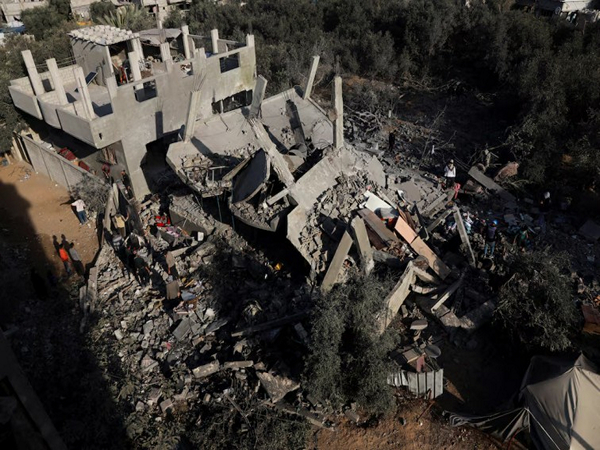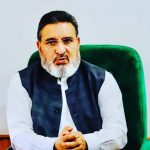At least 30 Palestinians have been killed since dawn in Israeli strikes across the Gaza Strip, medical sources told Al Jazeera, as the enclave’s collapsing health system struggles to cope with the rising number of wounded amid ongoing Israeli bombardment.
According to Al Jazeera, three people were killed in the Tuffah neighbourhood in eastern Gaza City on Friday, while five others died in an air strike on Jabalia an-Nazla in northern Gaza.
In another incident, an Israeli strike targeted tents sheltering displaced Palestinians in al-Mawasi, southern Gaza – a zone previously labelled a “safe area” – killing at least five people, including infants, and sparking a major fire. Al Jazeera reported that al-Mawasi has come under repeated attacks despite its designation.
The toll also includes seven Palestinians who were seeking aid when they were killed, according to the network.
Al Jazeera’s correspondent Hani Mahmoud reported that wounded victims, including children, were taken to Nasser Hospital, some bearing injuries consistent with drone attacks.
“Drone missiles are packed with nails, metals and shrapnel that explodes at high speed, causing internal bleeding,” Mahmoud said. “These attacks are on the rise and target people in large crowds, in markets or while queueing for water.”
“While Israel claims to be using sophisticated weapons, when we look on the ground, we see the number of casualties contradicting what Israel is [saying],” he added, Al Jazeera reported.
Doctors in Gaza, overwhelmed by daily casualties, are being forced to prioritise emergency cases, often leaving out chronically ill patients. Al Jazeera quoted dialysis patient Omda Dagmash at al-Shifa Hospital as saying, “Before the war, I used to receive dialysis three times a week, with each session lasting four hours. At that time, the situation was stable, the treatment was effective, and we would return home feeling well and rested.”
“Now we can barely make the journey to the hospital, particularly since we are not eating well,” Dagmash said.
Rowaida Minyawi, another patient at al-Shifa, described the dire situation: “The journey here is long and costly. After all this exhaustion, we sometimes can’t find treatment. I have heart disease, high blood pressure and diabetes. Even the medicine we get is not good. What should we do? Die at home?”
Fuel shortages have forced hospitals to reduce services drastically. “Only a few departments are working. We had to cut electricity to the rest,” said Ziad Abu Humaidan from the hospital’s engineering department, according to Al Jazeera. “The hospital’s yards turned into graveyards rather than a place of care and healing. Without electricity, there is no lighting, no functioning medical equipment, and no support for other essential services.”
Meanwhile, according to a survey published by Israeli outlet Maariv, 44 percent of Israeli respondents said the ongoing war in Gaza will not achieve Israel’s goals, while 42 percent said it would. The survey showed a split along political lines, with 73 percent of coalition government supporters expressing confidence in military success, compared to 70 percent of opposition supporters who disagreed.
Separately, Al Jazeera reported that Israel faced backlash after bombing Gaza’s only Catholic church on Thursday, killing three people and injuring at least 10. United States President Donald Trump reportedly contacted Israeli Prime Minister Benjamin Netanyahu after having “not a positive reaction” to the strike, according to White House Press Secretary Karoline Leavitt.
Following the call, Netanyahu said the strike was the result of “stray ammunition” and that an investigation was underway. Hamas condemned the incident, calling it “a new crime committed against places of worship and innocent displaced persons” and part of what it described as a “war of extermination against the Palestinian people.” (ANI)








